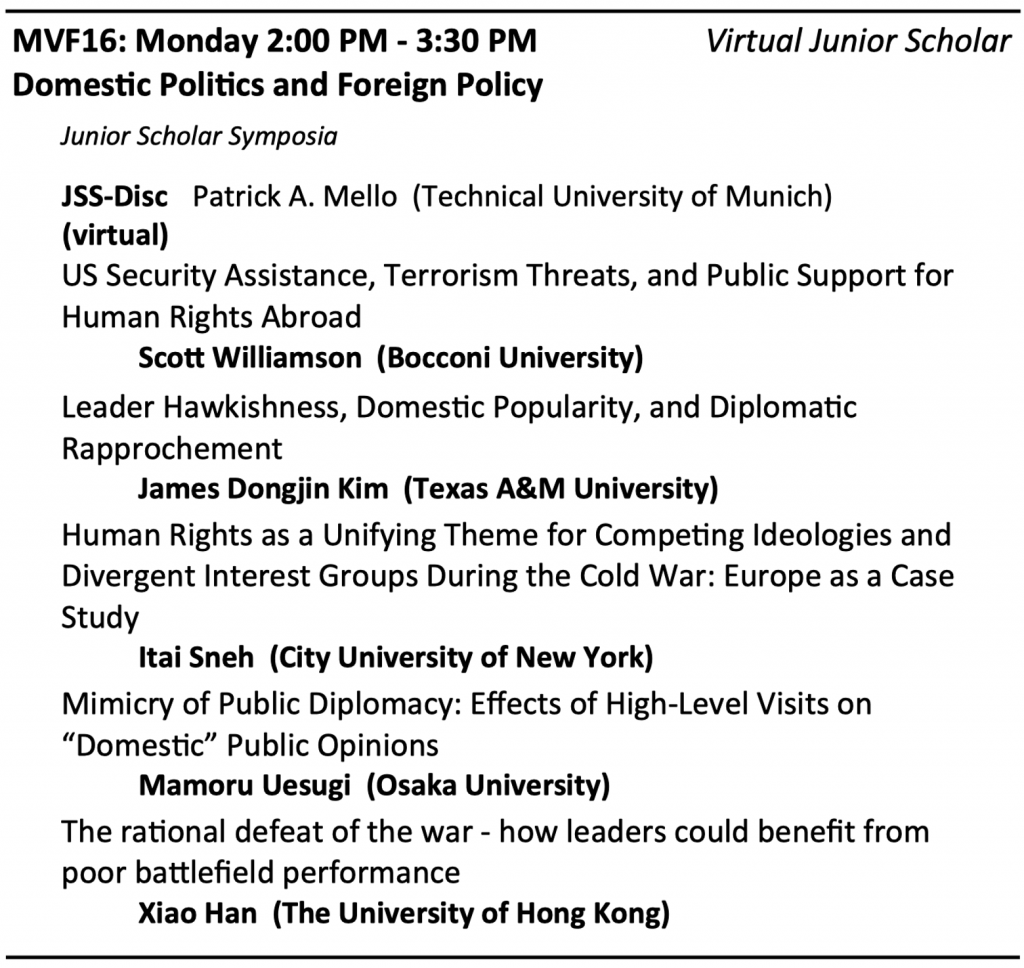62nd Annual Convention of the International Studies Association, April 6-9, 2021
At this year’s Annual Convention of the International Studies Association (ISA), I had four program appearances. The conference had initially been scheduled to take place in Las Vegas, but the COVID-19 pandemic made a shift to a virtual format necessary.
Together with Eugénia da Conceição-Heldt, Omar Serrano Oswald, and Anna Novoselova, we presented a paper on “Survival and Resilience of the UN Joint Inspection Unit“, based on our DFG research project, in a panel on the “Persistence and Resilience of International Organizations”, chaired and discussed by Orfeo Fioretos. I further contributed to the “Foreign Policy Analysis Methods Café“, chaired by Falk Ostermann, and I took part in the roundtable “Qualitative Comparative Analysis in International Relations“, chaired by Tobias Ide. Finally, I also served as chair and discussant in the panel “Statecraft in the 21st Century” (for details on the panels and roundtables, see below).
Besides these contributions, I also took part in the Business Meeting of ISA’s Foreign Policy Analysis Section and the Editorial Board Meeting of the section’s journal Foreign Policy Analysis (Oxford University Press).
Overall, the virtual platform worked seamlessly and many of the panels were incredibly well-attended, with about 45 participants in the Methods Café and 30 participants in the panel on International Organizations. Nonetheless, the in-person interaction is surely missing, so let’s hope that next year’s ISA can take place as planned, in Nashville, Tennessee, March 2022!
